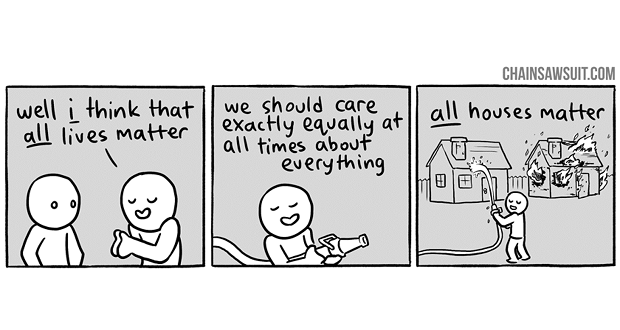
As Caroline Belden wrote in last week’s feature on “Cisgender Fragility,” we at the Winters Group incorporated new demographic questions into our post-session surveys in 2018. I took on the initial task of drafting these questions, which gathered information about participants’ race/ethnicity, generation, and gender identity. Despite majoring in gender studies in my undergraduate program, I found myself struggling with how to phrase our question around gender identity. I was well aware that there are a whole host of queer and transgender identities, and I puzzled over how best to be inclusive in our wording and choices.
Recognizing that I didn’t personally have enough experience to feel confident about composing the perfect question, I turned to my partner, who identifies as transgender and nonbinary, and asked, “What would your ideal gender identity question say on a survey?”
“What is your gender identity?” they replied, “with an empty box to fill in however the person wants.” I brought this suggestion up to my team, and we considered it, but concluded that unfortunately, this wasn’t a feasible option for our purposes. When analyzing survey responses, it simply isn’t practical to comb through hundreds of individual responses to what is really a quantitative question. Furthermore, we recognized that while some participants in our sessions would be comfortable with this terminology, others wouldn’t know what it meant or how to respond without any options to select from, effectively invalidating the question and potentially discouraging them from engaging further in our work. In the end, we included 5 choices: Man, Woman, Nonbinary, Transgender, Other. Participants can select as many options as apply to them and can fill in a box to specify alongside the selection of “other.”
As much as I felt we should include “cisgender” as a choice alongside transgender—in order to disrupt the false assumption that identifying with the sex one was assigned at birth is somehow neutral and shouldn’t require any further self-reflection or categorization—we decided against it in the end. The survey respondent frustrated by our “new-agey” language that Caroline wrote about last week provides a prime example of why—some people have not yet arrived at a point where such language provides an accessible point of entry. As much as I might wish that were different, in the context of educators within a business, we are developers first and advocates second. By nature, we have to make some decisions like this while working with clients on sensitive topics—even if justice, equity, and our personal values would dictate otherwise. The hope is that we can encourage our participants, at their own pace, to become more open to new language and ideas, and more understanding across difference.
The gaps in understanding across differences in gender identity remain vast, at times even among those close to people who live the complications of occupying a marginalized position. My partner’s family members have instructed my partner to ensure that they have facets of their identity beyond their gender—as if anyone’s identity could possibly be that simple. My partner has replied, “Just like you might join a women’s group or talk about women’s issues, I spend time in spaces designed for my gender neutrality, because it’s a part of my life that I can’t separate from myself. I don’t need to talk to you about it if you don’t want to hear about it, but it’s always going to be there.”
And they’re right—no one in my life, including those family members, would blink an eye if I joined a women’s sports team or reading group. Yet when my partner shares anything about their identity, it’s a challenge to the gender binary, and as such, is perceived as ostentatious, demanding—like they are dwelling on issues unnecessarily.
It’s also common for people to lean on grammatical “rules” as a form of pushback to using plural “they” as a singular, gender-neutral pronoun – “I can’t say that, it’s not grammatically correct!” While grammar rules are subjective and adherence to them (or lack thereof) is contextual, it’s also the case that “they” has been used as a singular, gender-neutral pronoun for hundreds of years, by famed writers and laypeople alike. (Think, “Someone left their wallet behind,” or “Nobody wants their professional reputation ruined.”) Several of the same folks vociferously objecting to the use of singular “they” have, in fact, unwittingly used the construct in their writings on the matter. As the linguist Geoff Nunberg, quoted in the previously linked article, aptly put it, “The only problem with singular ‘they’ is that some people still think there is one.”
Regardless of any concerns people may have about breaking a rule they (probably falsely) believe they unwaveringly adhere to, at the end of the day they must ask themselves whether their devotion to this rule is worth sacrificing the well-being of transgender people who use the pronoun because others do not feel right and in fact, can be extremely harmful to mental and physical health.
Even well-meaning people intending to use the right pronouns sometimes make mistakes. At times like these, the best response is to quickly correct the mistake and move on. Often, people instead try to overcompensate. “I’m so sorry, you know I support you and would never…” Responding this way demands validation and forgiveness, shifting responsibility from the person who made the mistake to the transgender individual to forgive them and assure them they are “on the good side.”
The central problem with fragility is this: Fragility. Prevents. Progress. It prevents the progression toward that which is more just and equitable. When we must cater to those not prepared to encounter new language, whether in surveys or conversations, we prevent something: a learning experience, a shift in perspective, a person’s progress toward mental health. In catering to those who feel certain topics of conversation go “too far” or “dwell” on a subject, we prevent ourselves from developing a true understanding of one another. In overcompensating for mistakes, we prevent our own reflection and learning about them, so eager are we to be validated as well-intentioned.
The central problem with fragility is this: Fragility. Prevents. Progress. It prevents the progression toward that which is more just and equitable. Click To TweetThe only antidotes to these problems—which few of us would intentionally wish to cultivate—are listening, and self-reflection. We must search for double-standards in our own words and behaviors to identify our own fragility. Yet we cannot always recognize our own demonstrations of fragility. Thus, it is essential to listen when those from marginalized groups we do not occupy ask us to reconsider, accepting criticism humbly and thoughtfully—and moving forward.
It is essential to listen when those from marginalized groups we do not occupy ask us to reconsider, accepting criticism humbly and thoughtfully—and moving forward. Click To Tweet

















